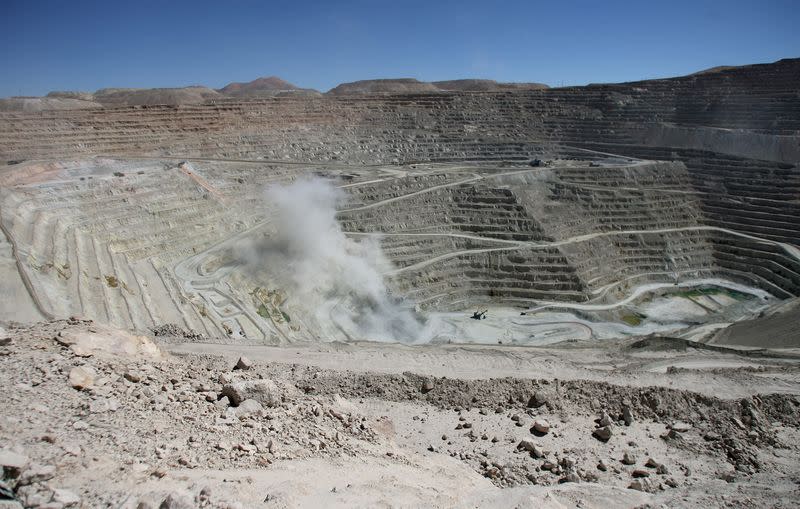Chile greenlights mining tax reform that boosts government take
By Fabian Cambero
SANTIAGO (Reuters) -Lawmakers in Chile's lower house of Congress gave final approval on Wednesday for a long-awaited mining tax reform that now requires only the signature of leftist President Gabriel Boric, who has publicly backed it, to become law.
The reform will require large copper and lithium producers that operate in the mineral-rich Latin American nation to pay more taxes and royalties to the government.
Chile is the world's top copper producer and No. 2 in lithium, both seen as key to making future fleets of electric vehicles powered by rechargeable batteries.
By a vote of 101 in favor to 24 against, lawmakers approved modifications to the tax and royalty bill endorsed by the Senate last week.
The lopsided vote was hailed by Finance Minister Mario Marcel, who underscored that the higher government take required of mining companies would address past abuses.
"With this legislation, we seek to avoid what happened many times with our country's natural riches: they were exploited, they disappeared, which left very little for the country and its future development," Marcel told reporters after the vote.
Under the reform, the top tax rate will reach up to nearly 47% for companies that produce over 80,000 tonnes of fine copper a year, considered high by the industry.
It also establishes a 1% ad valorem tax on copper sales from companies that sell more than 50,000 tonnes of fine copper, as well as an additional 8% to 26% tax depending on the miner's operating margin.
Mining association Sonami expressed relief that the measure ended uncertainty over the type of reform lawmakers would ultimately adopt.
"Uncertainty lasted for almost five years and, without a doubt, hurt the country's main productive activity," Sonami said in a statement.
The association described the final legislative language as "better" than what was initially proposed by the government, giving credit to Marcel for enacting industry-friendly revisions.
(Reporting by Fabian Cambero; Writing by Carolina Pulice; Editing by David Alire Garcia and Jamie Freed)

 Yahoo Finance
Yahoo Finance 

